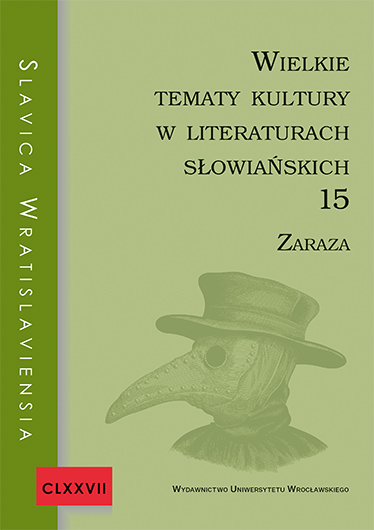Tko preživi – pričat će ili okvir za mržnju 2020.
Live to Tell, or, The 2020 “Framework for Hatred”
Author(s): Tea-Tereza Vidović Schreiber, Josip MiletićSubject(s): Language and Literature Studies, Sociology of Literature
Published by: Wydawnictwo Uniwersytetu Wrocławskiego
Keywords: social context; Ivan Aralica; intertextuality; A Framework for Hatred; orality; contagion
Summary/Abstract: The paper discusses intertextuality in Ivan Aralica’s novel Okvir za mržnju (A Framework for Hatred). The interference of the oral and the written medium is analysed not only at the level of primary orality (various oral and marginally oral forms) but also at the level of secondary orality, often referred to as “new orality,” which is transmitted through new, different media (for example, newspaper text, radio, television, and wall newspapers). The comparative method will be used to present the motif of a scabies contagion in the novel, with the presence of oral literature as a medium for discussing everything that the contagion entails. Parallels will be made with modern oral forms (memes), which are most often transmitted via Viber, WhatsApp, Internet, Facebook and Instagram today, and which currently feature the COVID-19 pandemic in Croatia and the world. Given that history is the teacher of life, it is perfectly understandable that this novel by Aralica, based on historical facts and experiences surrounding contagion, can serve as an example of how to tackle similar challenges of the present. It is this long-established hypothesis that shows the aim of the paper, not only at the level of the theme and motifs, but also on an experiential level, which includes a number of different emotional states (from hatred to laughter) caused by the political and social circumstances of a community which often observes its history and present through the prism of conspiracy theories. Although the novel A Framework for Hatred is valued differently by many critics, this paper reintroduces the possibility of reconsidering the canonical value of this work, bearing in mind that literary texts sometimes outgrow their own authors, especially at times when the contemporary reader’s self is reflected in the text and subtext of a newer, recognisable social context.
Journal: Slavica Wratislaviensia
- Issue Year: 177/2023
- Issue No: 1
- Page Range: 297-311
- Page Count: 15
- Language: English

